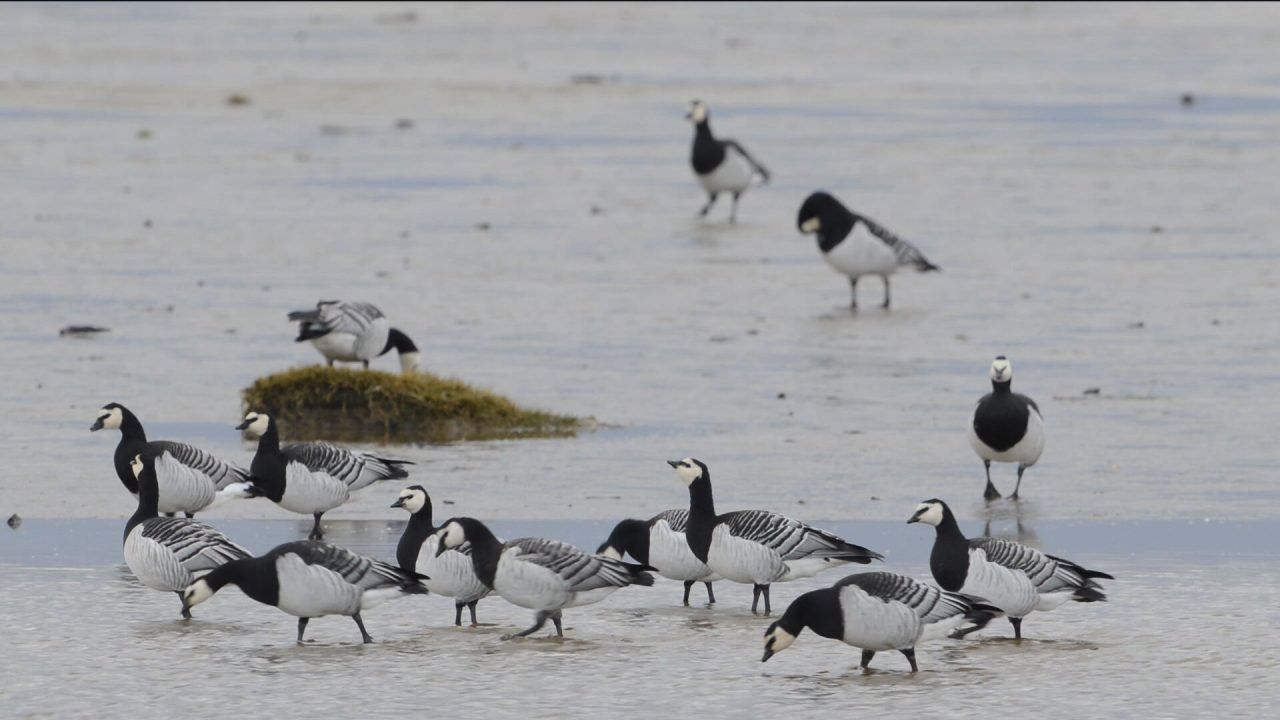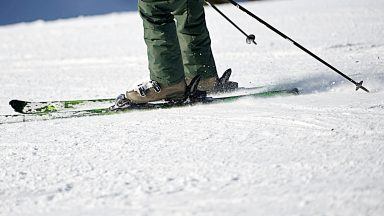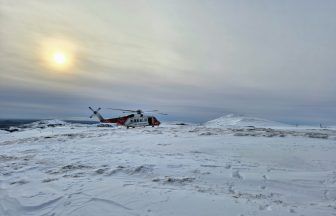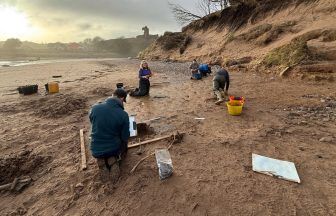Hundreds of dead birds have been removed from the shoreline in Stonehaven amid an “unprecedented” rise in avian flu cases.
Aberdeenshire Council confirmed teams are working to clear carcasses from shores with a warning to the public to avoid touching dead or dying birds who may wash up on beaches.
A total of 330 birds were removed from Stonehaven beach on Monday.
Experts say the risk of contracting bird flu from dead or dying birds is extremely low, however the risk of other diseases such as salmonella being carried by wild birds remains possible.
NatureScot, the national nature agency for Scotland, confirmed a total of 154 birds have been officially diagnosed with the influenza since October 2022.
Terns, gulls – such as Sandwich tern, common tern, kittiwake, herring gull and black-headed gull – and guillemots are among the species confirmed to have been diagnosed.
At this time of year, a large number of seabirds migrate to the north east of Scotland to feed and breed.
However, the rise of bird flu cases within wild bird populations is resulting in an unusually high number of dead or dying birds being washed up on our beaches.
An Aberdeenshire Council spokesperson said: “Our teams have been closely monitoring the number of deaths in the bird population over recent days across the region. We have activated our strategy to begin removing carcasses from our shoreline, with around 330 birds having already been removed from Stonehaven beach on Monday.
“The council has finite resources, but we will look to remove large concentrations of birds from popular areas of highest footfall. People should be aware, however, that there will inevitably be more birds washed ashore with each tide so beaches may not be cleared entirely.
“We work closely with APHA whose general advice is to leave dead or sick birds in situ where natural processes will result in the breakdown of the carcasses. The risk of catching avian influenza from dead or dying birds is extremely low, however due to other diseases such as salmonella which wild birds can carry, the advice is to leave the birds in-situ.
“Keep pets and children away from any dead or sick birds and don’t touch wild bird feathers or surfaces contaminated with droppings.”
A NatureScot spokesperson said: “154 birds, from 50 different locations and accounting for 21 different species, have tested positive for avian flu in Scotland since October 2022. This spring/summer avian flu has been confirmed in terns, gulls (Sandwich tern, common tern, kittiwake, herring gull, black-headed gull) and guillemot. This number obviously does not represent the number of birds estimated to have died.
“We are concerned about the unprecedented outbreak of avian flu over the last two years and continue to work with partners through the Scottish Task Force to ensure that we have the correct monitoring and best advice for land managers in place. Testing is continuing.
“Members of the public should avoid touching sick or dead wild birds and we would encourage visitors to coastal NatureScot reserves to keep their dogs on a lead to avoid them picking up dead birds. Dead wild birds should be reported to DEFRA by phone 03459 335577 or online.“
Anyone who finds a single dead bird of prey, swan, goose, duck or gull or five or more dead wild birds of any other species at the same time should report it here.
Follow STV News on WhatsApp
Scan the QR code on your mobile device for all the latest news from around the country


 STV News
STV News

























